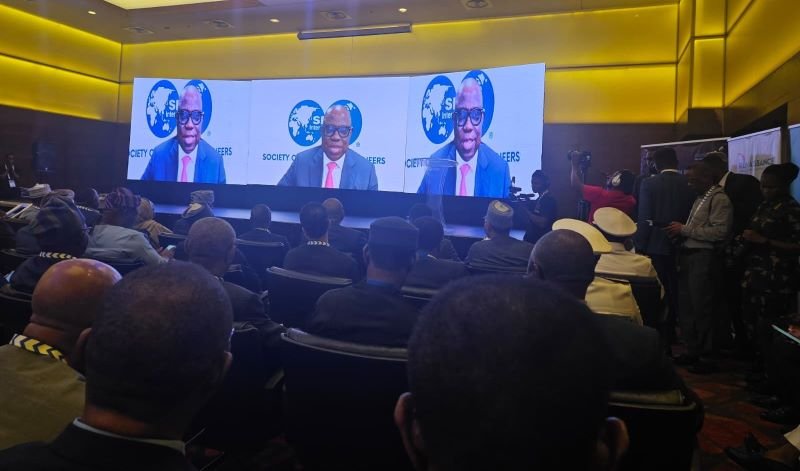DESPITE swirling rumours about his possible exit, Bayo Ojulari, Group Chief Executive Officer (GCEO) of the Nigerian National Petroleum Company Limited (NNPC Ltd), reaffirmed his leadership and vision during a major appearance at an event hosted by the Society of Petroleum Engineers (SPE) in Lagos.
Ojulari’s participation, notably his delivery of a high-level virtual presentation came just days after a report by News Point Nigeria suggested that his position at the helm of NNPC was under review following alleged concerns at the Presidency.
The controversy reportedly revolves around past business ties with Gbolahan Obanikoro, son-in-law of former Vice President Atiku Abubakar.
Although the NNPC boss did not address the allegations or resignation rumours directly, his speech, tone, and visibility were widely interpreted as a calculated move to project confidence, continuity, and stability within the national oil company.
During his remarks, Ojulari emphasized the need for Africa and Nigeria in particular to chart its own energy transition path, rather than succumbing to global pressure to abandon hydrocarbons prematurely.
“The energy transition must not be imposed. It must be negotiated, contextualised, and it must be just,” Ojulari declared.
He argued that natural gas must remain central to Africa’s energy roadmap, citing the continent’s unique developmental realities and persistent energy poverty.
“Millions across Africa still lack access to basic energy services. We cannot pursue global climate goals while ignoring this energy gap. Our transition must prioritize access, inclusion, and resilience,” he said.
Ojulari laid out an ambitious future for Nigeria’s energy industry, one that harmonizes traditional oil and gas operations with emerging technologies, such as carbon capture, hydrogen, artificial intelligence in exploration, and compressed natural gas (CNG) distribution.
Although he made no reference to media reports about internal concerns regarding his continued stay at NNPC, Ojulari’s appearance served as an unspoken rebuttal to claims that his removal was imminent.
On August 3, TheCable reported that Ojulari’s future at the NNPC was being weighed following internal review by top figures at the Presidency. The report cited alleged irregularities linked to past business engagements with Obanikoro and raised questions about his political affiliations.
In response to the report, NNPC has not issued a formal statement. However, Ojulari’s active engagement in high-profile events such as the SPE conference, where he spoke about regional energy strategies and cross-border investment seems to be part of a broader effort to stay focused on policy, while letting his record speak amid political speculation.
Rejecting the notion that the oil and gas sector is becoming obsolete, Ojulari described it as an anchor for Nigeria’s economic transformation, with the potential to fund the country’s leap into cleaner, smarter, and more inclusive energy systems.
“This is not a sunset industry. It is the engine room for the continent’s economic resilience and innovation,” he said.
He called for deeper regional collaboration, better investment frameworks, and policy certainty to attract both foreign and domestic capital.
“For Nigeria and for Africa, energy is not just a commodity. It is geopolitical capital. It is a tool for diplomacy, security, and inclusive development,” Ojulari asserted.
While questions remain about the internal politics surrounding his role, Bayo Ojulari continues to present himself as a steady hand on the wheel of Nigeria’s most strategic national asset. Whether this display of leadership and confidence is enough to quiet the noise within corridors of power remains to be seen.
But for now, Ojulari appears focused on the task ahead: repositioning Nigeria’s energy sector to compete and thrive in a changing world.







